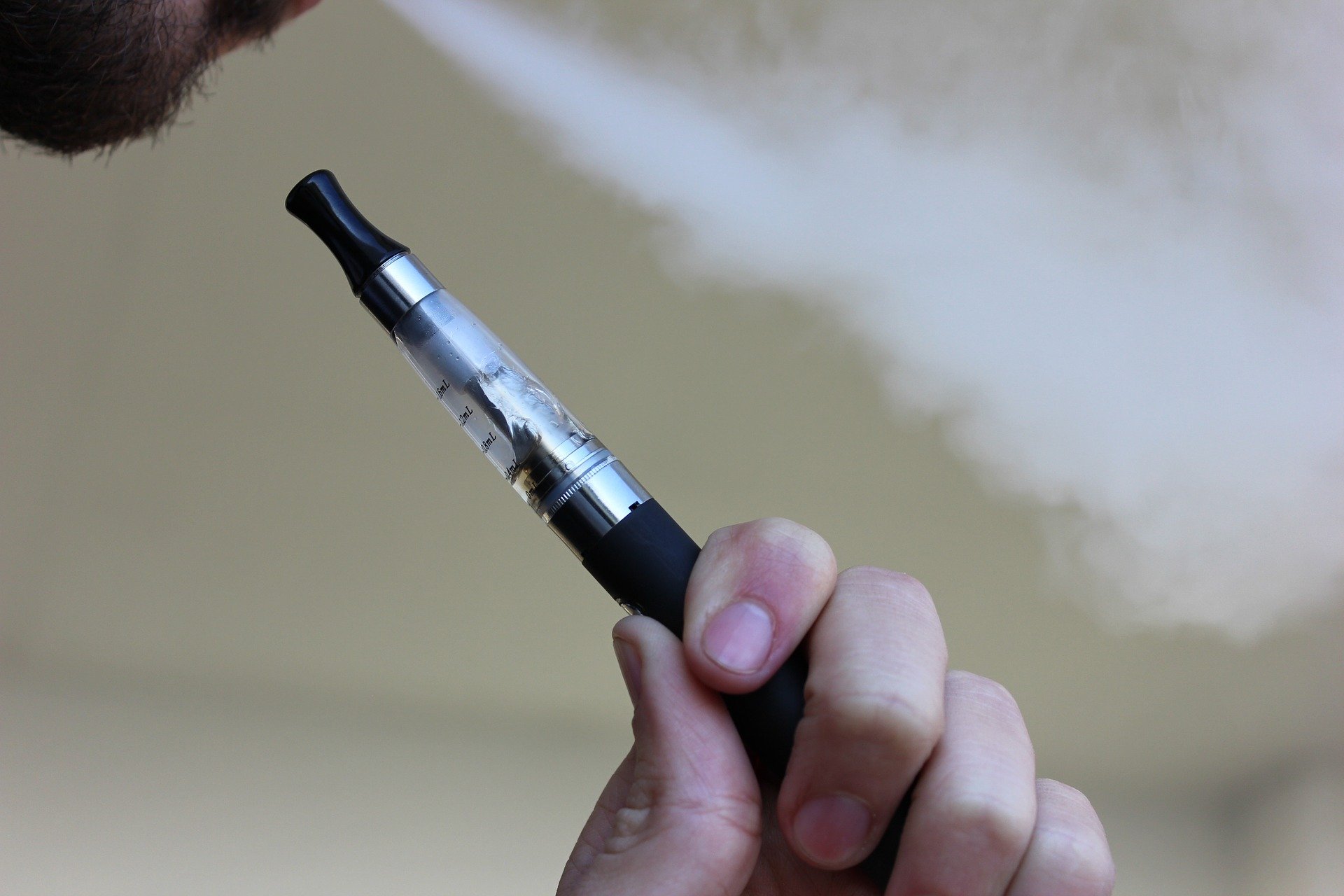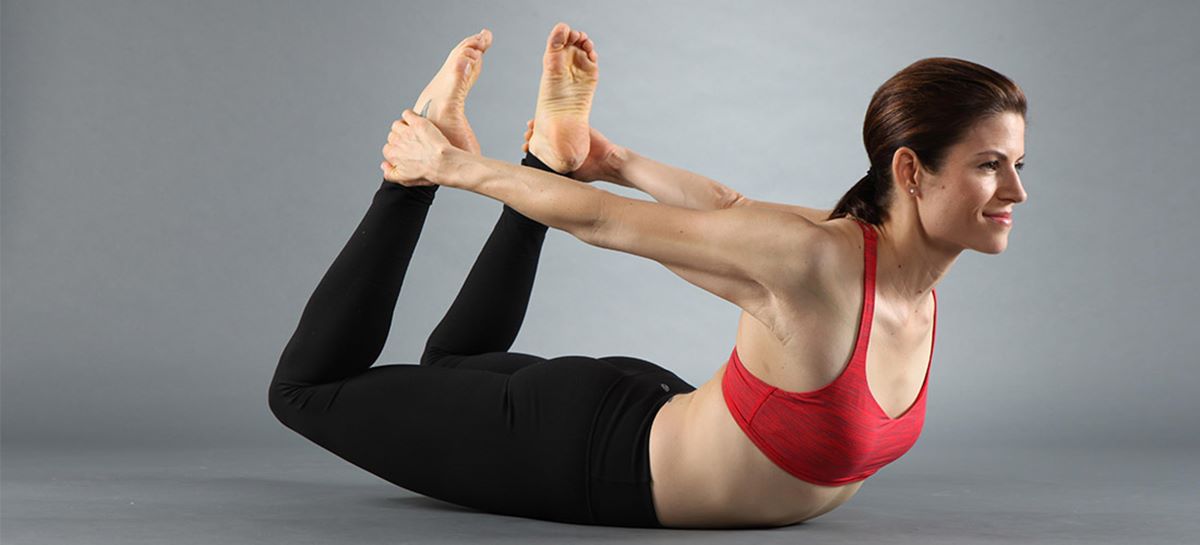

Featured
How Does Exercise Help Stress
Modified: January 2, 2024
Discover how exercise can effectively reduce stress and improve your overall well-being. Explore the Featured techniques and benefits of incorporating exercise into your daily routine.
Introduction
Stress has become a common part of our daily lives, affecting people from all walks of life. Whether it’s work pressure, relationship issues, financial worries, or health concerns, stress can have a significant impact on our overall well-being. It can lead to physical ailments, emotional disturbances, and decreased productivity.
In this fast-paced world, it’s essential to find ways to manage and reduce stress effectively. One powerful tool that can help combat stress is exercise. Exercise not only improves physical fitness but also has numerous benefits on mental and emotional health. In this article, we will explore how exercise can help alleviate stress, both physiologically and psychologically.
But first, let’s define what stress is. Stress is the body’s response to external pressures or demands, often characterized by feelings of tension, anxiety, and overwhelm. It activates the body’s “fight-or-flight” response, releasing hormones like cortisol and adrenaline, which prepare the body to react to perceived threats.
The effects of stress on the body can be far-reaching. Chronic stress can lead to high blood pressure, increased risk of heart disease, weakened immune system, digestive disorders, and mental health issues like depression and anxiety. It’s crucial to find healthy ways to manage stress and prevent these negative consequences from taking a toll on our well-being.
Exercise has been shown to be an effective stress management tool, offering both immediate and long-term benefits. When we engage in physical activity, our bodies release endorphins, which are natural mood-boosting chemicals. These endorphins act as a natural painkiller, providing a sense of calm and relaxation.
Moreover, exercise helps regulate cortisol levels, the hormone responsible for the stress response. Regular exercise reduces the overall levels of cortisol in the body, leading to a decrease in stress and anxiety. This hormonal balance has a significant positive impact on overall well-being and mental health.
In addition to its physiological effects, exercise also has powerful psychological benefits when it comes to managing stress. Engaging in physical activity provides an outlet for pent-up frustrations and emotions, allowing for healthy stress release. It helps redirect negative thoughts and promotes a more positive mindset.
Exercise also promotes better sleep, which is essential for stress reduction. Quality sleep helps restore our bodies and minds, allowing us to better cope with daily challenges and stressors. Regular exercise has been shown to improve sleep patterns, leading to a more restful and rejuvenating night’s sleep.
Now that we understand the importance of exercise for stress management, let’s explore the best types of exercises and tips for incorporating them into our daily routines. By making exercise a regular part of our lives, we can effectively reduce stress and improve our overall well-being.
Definition of Stress
Stress is a natural and unavoidable part of life. It is the body’s response to external pressures or demands, whether they are physical, mental, or emotional. Stress can be triggered by a variety of situations, such as work, relationships, financial difficulties, or health concerns. It is important to understand that stress itself is not inherently negative; it is the body’s way of preparing for challenges and threats.
When we experience stress, our bodies go into what is commonly known as the “fight-or-flight” response. This response is an evolutionary mechanism designed to protect us from harm. When faced with a perceived threat, the body releases stress hormones, such as cortisol and adrenaline, which trigger a series of physiological changes.
The fight-or-flight response leads to increased heart rate, rapid breathing, heightened focus and alertness, and a surge of energy. These changes are intended to prepare the body to either confront the threat head-on or to flee from it. While this response can be helpful in short-term, life-threatening situations, it becomes problematic when it is chronically activated.
Chronic stress occurs when we are in a state of continuous stress with limited opportunity for relief or relaxation. This can have serious consequences on our physical, mental, and emotional well-being. Prolonged exposure to stress hormones can lead to a wide range of health issues, including high blood pressure, heart disease, weakened immune system, digestive disorders, and mental health disorders, such as depression and anxiety.
It is important to note that stress is subjective and varies from person to person. What one person may find stressful, another person may not. Additionally, our perception of stress plays a significant role in how it affects us. What matters most is how we individually respond to and cope with stress.
There are two types of stress: acute stress and chronic stress. Acute stress is the immediate response to a specific event or situation, often referred to as a “stressor.” This type of stress is short-lived and typically subsides once the stressor is removed or resolved. Examples of acute stressors include a looming deadline, an argument with a loved one, or a near-miss car accident.
On the other hand, chronic stress is ongoing and long-lasting. It occurs when we continually face stressors over an extended period of time, and our bodies do not have sufficient time to recover and restore balance. It can be caused by factors such as a high-pressure job, ongoing financial difficulties, or chronic health problems.
Understanding the definition and types of stress is the first step towards effectively managing it. By recognizing the signs and symptoms of stress and implementing healthy coping mechanisms, we can better navigate the challenges of daily life and promote our overall well-being.
Effects of Stress on the Body
Stress can have profound effects on the body, affecting various systems and organs. When we experience stress, our bodies go into a state of heightened alertness and reactivity. While this response serves an important purpose in the short term, prolonged exposure to stress can lead to detrimental effects on our physical health.
One of the major physiological effects of stress is the release of stress hormones, particularly cortisol, into the bloodstream. Cortisol helps prepare the body for action by increasing blood pressure, heart rate, and blood sugar levels. While these responses are beneficial in acute situations, chronic activation of the stress response can result in serious health issues.
One common consequence of chronic stress is cardiovascular problems. When cortisol levels are consistently elevated, it can lead to high blood pressure, an increased risk of heart disease, and an increased likelihood of developing atherosclerosis. Chronic stress can also negatively impact the immune system, making individuals more susceptible to infections, illnesses, and autoimmune disorders.
Stress can also have a profound impact on digestive health. When the body is under stress, it diverts resources away from non-essential functions, including digestion. This can lead to issues such as stomachaches, indigestion, acid reflux, and irritable bowel syndrome (IBS). Furthermore, stress can alter the gut microbiome, which plays a critical role in overall digestive health and immune function.
Mental health is another area that can be significantly affected by stress. Chronic stress has been linked to the development of anxiety disorders and depression. The constant activation of the stress response can lead to feelings of overwhelm, irritability, and a reduced ability to cope with daily challenges. It can also impair cognitive function, including memory, attention, and decision-making.
In addition to the physical and mental effects, stress can also impact our sleep patterns. When we are stressed, our minds tend to be filled with racing thoughts and worries, making it difficult to fall asleep or stay asleep throughout the night. Lack of quality sleep only exacerbates stress levels, creating a vicious cycle.
Furthermore, stress can manifest in physical symptoms such as headaches, muscle tension, and chronic pain. It can also lead to unhealthy coping mechanisms, such as overeating or indulging in unhealthy substances, in an attempt to find temporary relief from stress.
Overall, chronic stress can have a profound impact on our bodies, affecting multiple systems and increasing the risk of various health problems. Recognizing the effects of stress on our physical well-being is crucial in order to take proactive steps towards stress management and prioritize self-care.
How Exercise Helps with Stress
Exercise is a powerful and natural way to combat stress and promote overall well-being. Engaging in regular physical activity has numerous benefits for both the body and mind, making it an effective tool for stress management.
Physiologically, exercise triggers the release of endorphins, which are neurotransmitters that act as natural painkillers and mood boosters. Endorphins help reduce feelings of stress and anxiety, promoting a sense of calm and relaxation. The immediate mood-enhancing effects of exercise can be felt even after just a short and intense workout.
Exercise also helps regulate the levels of stress hormones in the body, particularly cortisol. When we engage in physical activity, cortisol levels naturally rise, allowing the body to adapt and handle the physical demands placed upon it. However, regular exercise has been shown to decrease overall cortisol levels in the long term, leading to a reduction in chronic stress and its associated negative health effects.
Psychologically, exercise provides a healthy outlet for stress and pent-up emotions. When we are physically active, our minds shift away from the stressors of daily life and focus on the present moment. This can help break the cycle of worry and rumination, promoting a more positive mindset and reducing feelings of anxiety and overwhelm.
In addition, exercise stimulates the production of neurotransmitters like serotonin and dopamine, which are known to improve mood and alleviate symptoms of depression. Regular exercise has been shown to be as effective as medication and therapy in treating mild to moderate depression.
Exercise can also improve sleep quality, which is crucial for stress management. Quality sleep allows the body and mind to rest and recover, promoting better coping mechanisms for stress. Exercise helps regulate the sleep-wake cycle and can aid in falling asleep faster and staying asleep throughout the night.
Furthermore, exercise promotes overall physical fitness and strength, which can boost self-confidence and self-esteem. Feeling physically strong and capable can enhance our ability to cope with stress and face daily challenges with resilience.
It is worth noting that the benefits of exercise on stress are not limited to high-intensity workouts. Any form of physical activity can have stress-relieving effects. This includes activities like walking, swimming, yoga, dancing, or even gardening. The key is to find an activity that you enjoy and can incorporate into your daily routine consistently.
By engaging in regular exercise, you can take control of your stress levels and improve your overall well-being. The combination of physiological and psychological benefits offered by exercise makes it a valuable tool for managing stress and promoting a healthier and happier life.
Physiological Effects of Exercise on Stress
Exercise has significant physiological effects on the body’s stress response. Engaging in regular physical activity can lead to various changes within the body that help alleviate stress and promote overall well-being.
One of the primary physiological effects of exercise on stress is the release of endorphins. Endorphins are natural chemicals produced by the brain that act as natural painkillers and mood enhancers. Exercise triggers the release of endorphins, which help reduce stress, increase feelings of happiness and relaxation, and improve overall mood.
Exercise also plays a role in regulating stress hormone levels in the body, particularly cortisol. Cortisol is a stress hormone that is released during times of perceived danger or when the body is under stress. While cortisol is essential for the body’s fight-or-flight response, chronic exposure to high levels of cortisol can have negative health effects. Regular exercise has been shown to reduce overall cortisol levels, leading to a decrease in chronic stress and its associated health risks.
Another physiological effect of exercise on stress is its impact on the cardiovascular system. Engaging in physical activity increases heart rate, which improves cardiovascular health and circulation. Regular exercise can help lower blood pressure and reduce the risk of heart disease, which can be exacerbated by chronic stress. By improving cardiovascular health, exercise promotes a healthier stress response and helps protect the body from the negative effects of stress on the heart.
Exercise also promotes better sleep, which is crucial for stress management. Physical activity helps regulate the sleep-wake cycle, improves sleep quality, and reduces the time it takes to fall asleep. Quality sleep allows the body to recover and rejuvenate, improving its ability to cope with stress and reducing the overall stress load on the body.
Additionally, exercise has an impact on the immune system, which can be weakened by chronic stress. Regular physical activity strengthens the immune system, making it more resilient and better equipped to fight off infections and illnesses. By boosting immune function, exercise helps protect the body from the negative consequences of chronic stress on the immune system.
Furthermore, exercise promotes improved digestion and gut health. Chronic stress can lead to digestive issues such as stomachaches, indigestion, and irritable bowel syndrome (IBS). Exercise helps stimulate the digestive system, improves digestion, and promotes a healthy gut microbiome. A healthy gut is essential for overall well-being and can help reduce the negative impact of stress on the digestive system.
In summary, exercise has profound physiological effects on the body’s stress response. By increasing endorphin release, regulating cortisol levels, improving cardiovascular health, promoting better sleep, strengthening the immune system, and enhancing digestion, exercise plays a crucial role in mitigating the negative effects of stress on the body. Incorporating regular physical activity into your routine can have significant benefits for stress management and overall well-being.
Psychological Effects of Exercise on Stress
Exercise not only has powerful physiological effects on the body’s stress response but also has profound psychological benefits. Engaging in regular physical activity can have a positive impact on mental health and well-being, helping to alleviate stress and promote a more positive mindset.
One of the main psychological effects of exercise on stress is its ability to reduce anxiety and improve mood. When we exercise, our bodies release endorphins, which are natural mood-boosting chemicals. These endorphins act as natural painkillers and induce feelings of euphoria and well-being. Regular exercise leads to increased levels of endorphins, helping to decrease anxiety levels and promote a more positive mood.
Exercise also provides a healthy and constructive outlet for stress and pent-up emotions. When we engage in physical activity, our attention is redirected away from the stressors of daily life, and we can focus on the present moment. This can help break the cycle of rumination and worry, allowing for a sense of release and providing a mental escape from stressors. Many people find that engaging in exercise, whether it’s running, dancing, or practicing yoga, helps clear their minds and provides a sense of relief and relaxation.
Moreover, exercise promotes a sense of accomplishment and self-confidence. Setting and achieving exercise goals, whether it’s participating in a race, reaching a new personal best, or simply completing a workout, can boost self-esteem and improve confidence. This sense of achievement can transfer to other aspects of life, helping individuals feel more capable and resilient in the face of stress and challenges.
Regular exercise has also been linked to improved cognitive function. Exercise promotes blood flow to the brain, leading to enhanced focus, attention, and memory. This can help individuals better cope with stress and perform tasks more effectively. Additionally, exercise has been shown to improve sleep quality, and quality sleep is crucial for cognitive function and mental well-being.
Furthermore, exercise can provide a sense of social support and connection, which is essential for mental health. Engaging in group activities, joining sports teams, or participating in exercise classes can foster a sense of belonging and companionship. Social interactions that come with exercise can help combat feelings of isolation and provide a support network to lean on during times of stress.
Last but not least, exercise can promote better body image and body satisfaction. Regular physical activity can lead to improvements in body composition, weight management, and overall physical fitness. These changes, coupled with the release of endorphins and a sense of accomplishment, can contribute to a more positive body image and improve self-esteem.
In summary, exercise has powerful psychological effects on stress. By reducing anxiety, improving mood, providing a healthy outlet for emotions, fostering self-confidence, enhancing cognitive function, promoting social connection, and improving body image, exercise plays a significant role in managing stress and promoting overall psychological well-being.
Best Types of Exercise for Stress Relief
When it comes to relieving stress, not all types of exercise are created equal. Certain activities tend to be more effective in reducing stress levels and promoting relaxation. Here are some of the best types of exercise for stress relief:
1. Aerobic Exercise: Activities that get your heart rate up and increase your breathing rate, such as brisk walking, jogging, cycling, swimming, or dancing, are excellent choices for stress relief. Aerobic exercise helps release endorphins, improves cardiovascular health, and promotes a sense of well-being.
2. Yoga: Yoga combines physical movement, stretching, and breathwork, making it an ideal exercise for stress reduction. The focus on mindfulness and deep breathing in yoga helps calm the mind and relax the body. It promotes flexibility, strength, and balance while reducing anxiety and promoting mental clarity.
3. Pilates: Similar to yoga, Pilates focuses on controlled movements and emphasizes core strength, flexibility, and body awareness. Practicing Pilates can help improve posture, increase body awareness, and reduce muscle tension. It provides a low-impact workout that is effective for stress relief.
4. Tai Chi: Tai Chi is a slow and gentle martial art that combines flowing movements with deep breathing and meditation. It is known for its relaxation benefits, promoting a sense of calmness and inner peace. Tai Chi helps improve balance, flexibility, and body awareness, making it a holistic exercise for stress relief.
5. Mindful Walking: Taking a mindful approach to walking can be an effective stress-relieving exercise. Slow down, focus on your breath, and pay attention to the sensations in your body as you walk. Engaging in nature walks can be especially beneficial, as it combines the benefits of physical activity with the positive effects of spending time in nature.
6. Group Exercise Classes: Participating in group exercise classes, such as Zumba, spinning, or kickboxing, can provide a social element that adds to the stress-relieving benefits of exercise. Working out with others can boost motivation, create accountability, and offer a sense of community and support.
7. Outdoor Activities: Engaging in outdoor activities, such as hiking, gardening, or playing a sport, can provide double the benefits by combining physical activity with exposure to nature. Spending time in green spaces and getting fresh air can have a calming effect on the mind and reduce stress levels.
8. Mind-Body Practices: In addition to the specific exercises mentioned above, mind-body practices like meditation and deep breathing exercises can be incredibly effective in reducing stress. These practices help calm the mind, release tension, and promote relaxation.
It’s important to choose an exercise that you enjoy and can incorporate into your daily routine consistently. Find an activity that resonates with you and brings you joy. Experiment with different types of exercise to discover what works best for you in terms of stress relief. Remember, regular exercise is key, so aim for at least 150 minutes of moderate-intensity aerobic exercise or 75 minutes of vigorous-intensity exercise per week for optimal stress management.
Tips for Incorporating Exercise into Your Stress Relief Routine
Finding the time and motivation to exercise can be challenging, especially when stress levels are high. However, with a few simple tips, you can successfully incorporate exercise into your stress relief routine and make it a regular part of your life:
1. Schedule it: Treat exercise as an important appointment and schedule it into your daily or weekly calendar. Make it non-negotiable and prioritize it just like any other commitment. Set aside dedicated time for exercise and stick to it.
2. Start small: Begin with small, achievable goals to avoid feeling overwhelmed. Start with just a few minutes of exercise each day, and gradually increase the duration and intensity over time. Breaking it down into smaller steps makes it more manageable and increases the chances of long-term adherence.
3. Find activities you enjoy: Choose exercises that you genuinely enjoy doing. Whether it’s hiking, dancing, or cycling, find activities that resonate with you. When you enjoy what you’re doing, it becomes easier to stay motivated and consistent with your exercise routine.
4. Make it convenient: Select exercises that are easily accessible and convenient for you. Find a gym or fitness center close to your home or workplace, or consider home workout options. The more accessible and convenient the exercise, the more likely you are to stick with it.
5. Break it up: If finding a continuous block of time for exercise seems challenging, consider breaking it up into smaller sessions throughout the day. Aim for at least 10 minutes of exercise multiple times a day. Short bursts of physical activity can still provide stress relief and contribute to overall fitness.
6. Include social support: Exercise with a friend or join a group class to add a social element to your routine. Having someone to exercise with can provide motivation, accountability, and an enjoyable experience. It can also make the exercise session more enjoyable and provide a sense of belonging.
7. Sneak it in: Look for opportunities to add physical activity to your daily routine. Take the stairs instead of the elevator, walk or bike to work instead of driving, or use your lunch break for a quick walk. Incorporating exercise into your everyday activities helps increase overall physical activity levels.
8. Practice self-compassion: Be kind and understanding with yourself if you miss a workout or have a setback. Instead of beating yourself up, focus on getting back on track and making the next exercise session a priority. Remember that consistency is key, and every little bit of exercise counts.
9. Set realistic expectations: Set realistic, attainable goals for yourself. Avoid comparing your progress to others and focus on your individual journey. Recognize that progress takes time, and every step forward is a success.
10. Listen to your body: Pay attention to your body’s needs and limitations. If you’re feeling tired or sore, take a rest day or choose a lower-impact exercise. It’s important to find a balance between pushing yourself and allowing for adequate rest and recovery.
By following these tips, you can successfully incorporate exercise into your stress relief routine. Remember, consistency is key, so make exercising a habit. With regular physical activity, you can effectively manage stress, improve your overall well-being, and enjoy the numerous benefits that exercise has to offer.
Conclusion
In today’s fast-paced and stressful world, finding effective ways to manage and reduce stress is crucial for our overall well-being. Exercise has proven to be a powerful tool in combating stress, both physiologically and psychologically.
Physiologically, exercise helps regulate stress hormone levels, such as cortisol, and triggers the release of endorphins, which are natural mood boosters. It improves cardiovascular health, strengthens the immune system, and promotes better sleep. These physiological effects of exercise contribute to a decrease in chronic stress and its associated negative health effects.
Psychologically, exercise provides an outlet for stress, improves mood, boosts self-confidence, enhances cognitive function, and fosters a sense of accomplishment. It promotes relaxation, reduces anxiety, and offers a natural way to manage and alleviate stress-related symptoms such as tension, overwhelm, and restlessness.
When it comes to choosing the best types of exercise for stress relief, activities like aerobic exercise, yoga, Pilates, Tai Chi, mindful walking, group exercise classes, and outdoor activities have shown significant benefits in reducing stress levels and promoting overall well-being.
Incorporating exercise into your stress relief routine can be achieved by scheduling it, starting small, finding activities you enjoy, making it convenient, including social support, sneaking in physical activity throughout the day, practicing self-compassion, setting realistic expectations, and listening to your body’s needs.
By prioritizing regular exercise and incorporating it into your lifestyle, you can effectively manage and reduce stress. Remember that consistency is key, and every small step forward is progress. Embrace the power of exercise as a valuable tool in your stress management toolkit, and enjoy the physical and mental health benefits it brings!









